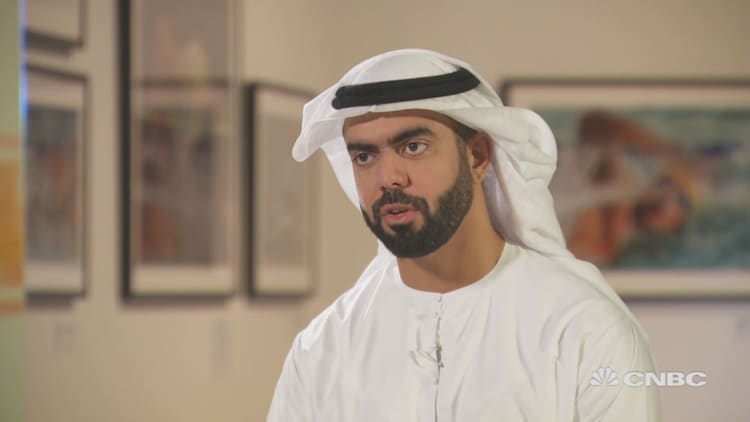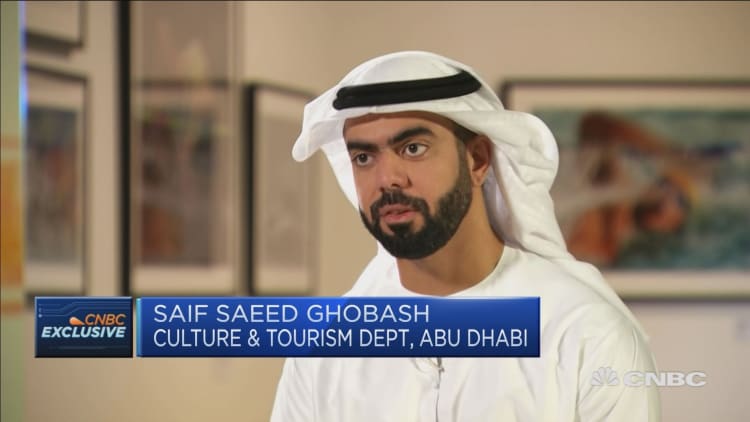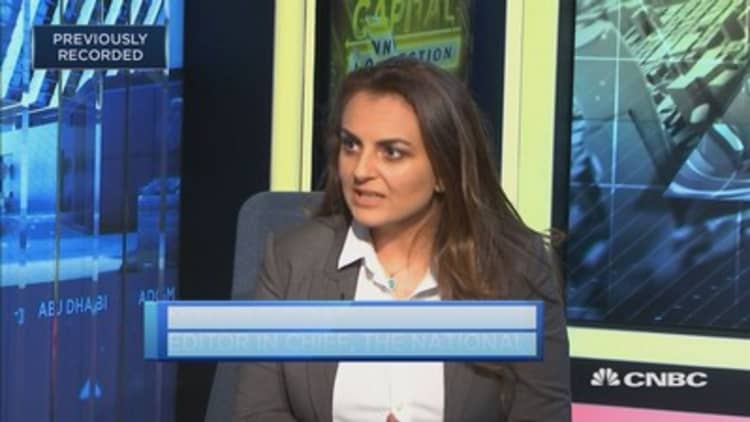
The increase in visitors to Abu Dhabi has crucial implications for the economic health of the United Arab Emirates (UAE) as a whole, according to the Emirati capital's tourism director.
Saif Saeed Ghobash said that tourism ensures a path to lessening the UAE's historic reliance on hydrocarbons.
"At a national level, Abu Dhabi strives to diversify its GDP away from oil," Ghobash, director general of the Department of Culture and Tourism, told CNBC's Hadley Gamble. "And one of the key sectors enabling us to do that is the tourism sector, and its contributions will be direct and indirect."
Following the global oil price drop of 2015, petroleum-exporting countries have been searching for alternative means to obtain growth and revenues.
Though the UAE is the most economically diversified country in the Gulf Cooperation Council (GCC), oil still constitutes roughly 30 percent of the state's GDP. The government aims to reduce this to 20 percent by 2021.
Translating culture into revenue
With the opening of the $1 billion Louvre Abu Dhabi in November, Ghobash expects further growth in visitors alongside a renewed awareness for arts and culture among the Emirate's 1.14 million residents.
This awareness, he said, is vital for promoting cross-cultural dialogue, fighting extremism, improving education, and achieving greater economic development.

"It's all about us providing a place for visitors and residents alike to have conversations to understand how connected they are to one another, it's a message of peace," Ghobash said, citing the government's commitment to this aim but adding that the next step is to further engage the private sector.
"I do believe with our efforts there's an increased awareness in our society about the importance of culture and arts," he said, stressing that beyond the human aspect, this has economic implications as well.
"If you look at other countries, the more they invest in culture and arts, the greater the economic growth, the greater the development, the greater their ability to attract entrepreneurs to come and set up base in these countries."
The director noted that hotel visitors to the UAE capital increased 10 percent in the last year, and his government is targeting 8.5 million yearly tourists by 2021. This should be aided by mega events like Dubai's Expo 2020, just an hour away, and new projects underway, including the Guggenheim Abu Dhabi modern art museum and a Warner Brothers indoor theme park that is set to be the world's largest.
And, according to the 2017 Mastercard Global Destination Cities Index, Abu Dhabi's tourism grew 18.9 per cent between 2009 and 2016 and it was the fourth-fastest growing city globally.
The next big thing for Abu Dhabi? Trying to deliver mega-projects every year, the director said, adding that this will rely on Emiratis' "ability to innovate, to disrupt ourselves, to continue to be competitive in that area beyond oil."
Watch: UAE is attractive for reasons beyond its economy, says editor-in-chief



